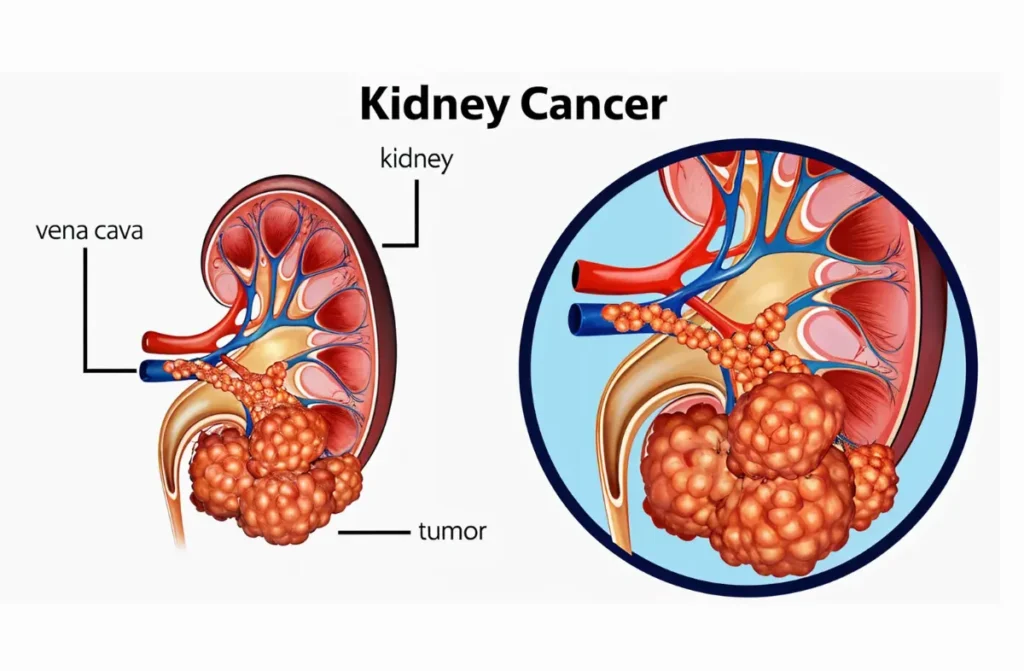When it comes to expert kidney cancer treatment in Chennai, patients trust the excellence of Ray & Rio’s Speciality Clinic. Kidney cancer, a condition that arises from the abnormal growth of cells within the kidneys, demands timely diagnosis and effective care to ensure favorable outcomes. Whether you’re located in the heart of the city or seeking kidney cancer treatment in Egmore or kidney cancer treatment in Neelankarai, Ray & Rio’s provides comprehensive urology services tailored to each patient’s unique needs.
Understanding Kidney Cancer
Kidney cancer, or renal cancer, occurs when malignant cells begin to grow uncontrollably within the tissues of the kidney. It can affect one or both kidneys and may spread to other organs if not diagnosed early. At Ray & Rio’s, a leading center for kidney cancer treatment in Chennai, our urologists emphasize early screening, especially for those with high-risk factors.
The most prevalent type of kidney cancer is Renal Cell Carcinoma (RCC). Other less common but serious types include:
- Transitional Cell Carcinoma (TCC): Starts in the renal pelvis or ureter.
- Wilms Tumor: A rare childhood kidney cancer.
- Renal Sarcoma: Originates in connective tissues of the kidney.
Patients from both Egmore and Neelankarai now have convenient access to advanced kidney cancer services. We’ve expanded our reach, making high-quality kidney cancer treatment in Egmore and kidney cancer treatment in Neelankarai easily accessible for residents in those localities.

What Causes Kidney Cancer?
The risk of developing kidney cancer increases due to several contributing factors. While not all causes can be prevented, awareness is key to early detection.
Common Risk Factors:
- Cigarette smoking
- Obesity and unhealthy diet
- Chronic high blood pressure
- Prolonged exposure to toxic chemicals (cadmium, asbestos)
- Family history of kidney cancer
- Genetic conditions such as von Hippel-Lindau disease
At Ray & Rio’s, our team provides personalized consultations to identify individual risks, especially for patients seeking kidney cancer treatment in Neelankarai and surrounding suburbs where awareness may be lower.
Symptoms to Watch For
Many cases of kidney cancer remain silent in early stages. However, as the condition progresses, the following signs may appear:
- Blood in the urine (hematuria)
- Persistent pain in the lower back or side
- Unexplained weight loss
- Fatigue and weakness
- Swelling in the legs or ankles
- Recurring fever
- Anemia
Our specialists at Ray & Rio’s emphasize that residents in Egmore, a rapidly developing neighborhood, should prioritize early screenings. We have set up dedicated pathways for kidney cancer treatment in Egmore to reduce delays in diagnosis.
Diagnostic Process at Ray & Rio’s
Early and accurate diagnosis is the foundation of effective kidney cancer treatment in Chennai. Ray & Rio’s offers a streamlined diagnostic protocol combining clinical expertise and cutting-edge technology.
Key Diagnostic Tools Include:
- Ultrasound, CT Scan, or MRI: To detect and assess kidney tumors
- Blood & Urine Tests: To evaluate kidney function and presence of abnormalities
- Biopsy: A tissue sample analyzed for malignancy
- Medical History Review & Physical Exam: For risk evaluation and symptom analysis
Residents of Neelankarai benefit from our satellite consultation facility, ensuring timely and accurate kidney cancer treatment in Neelankarai without needing to travel far for diagnostic services.
Treatment Options for Kidney Cancer
At Ray & Rio’s, we offer customized treatment plans that combine evidence-based medicine and patient-centered care. Our team of specialists ensures that each patient receives the most suitable and advanced kidney cancer treatment in Chennai.
Surgical Treatment
- Partial Nephrectomy: Removal of the tumor with minimal loss of kidney tissue.
- Radical Nephrectomy: Removal of the entire kidney in advanced cases.
Both surgeries are available at our main center and supported in nearby locations like Egmore, where surgical consultation for kidney cancer treatment in Egmore is provided.
Targeted Therapy & Chemotherapy
These treatments are used when cancer has spread or surgery isn’t viable. Targeted drugs block cancer cell growth while sparing healthy cells.
Radiation Therapy
Mainly used to relieve pain or control advanced disease, especially in patients not suitable for surgery.
Immunotherapy
This approach harnesses the body’s immune system to recognize and attack cancer cells. It’s a leading innovation in advanced kidney cancer treatment in Chennai.
Recovery and Life after Treatment
Recovery is not just physical—it involves emotional healing too. At Ray & Rio’s, we help our patients rebuild their strength and return to daily life with confidence.
Post-Treatment Support Includes:
- Routine follow-up imaging and lab work
- Emotional counseling and group support
- Lifestyle advice for kidney health
- Nutrition and fitness plans
Our team supports patients from Neelankarai, offering local counseling and post-operative monitoring as part of kidney cancer treatment in Neelankarai, reducing travel stress during recovery.
Why Choose Ray & Rio’s for Kidney Cancer Treatment in Chennai?
Ray & Rio’s is recognized as a center of excellence for kidney cancer treatment in Chennai, combining technology, talent, and tailored care. Here’s why patients choose us:
- Expert Urologists: Among the best urologists in Chennai, with global training.
- Advanced Facilities: Minimally invasive surgeries, high-precision imaging, and modern ICUs.
- Holistic Approach: Physical, psychological, and emotional support.
- Accessibility: We now cater to patients from Egmore, Neelankarai, and other localities through dedicated services like kidney cancer treatment in Egmore and kidney cancer treatment in Neelankarai.
We understand that access and convenience matter as much as quality. Our commitment is to make world-class urology and cancer care available across Chennai’s diverse neighborhoods.

Conclusion
When facing a diagnosis as serious as kidney cancer, it’s essential to act fast and trust the experts. With a focus on innovation, compassion, and holistic recovery, Ray & Rio’s stands as a trusted name in kidney cancer treatment in Chennai. We are proud to extend our expertise to patients in Egmore and Neelankarai, ensuring that no matter where you are, you have access to the highest standard of care.
Take the first step today—consult our expert team for advanced, personalized, and compassionate kidney cancer treatment in Chennai.
Read Also : Water Intake Kidney Disease

